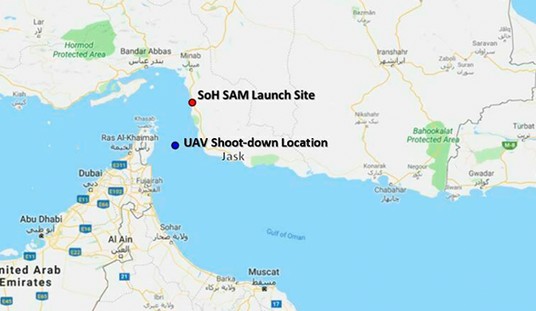In last night’s speech, Donald Trump pledged to keep up the fight in Afghanistan until the day when “it will be possible to have a political settlement that includes elements of the Taliban.” Today … is not that day, apparently. Within hours of Trump’s speech, the Taliban rejected any political outcome, and declared that their jihad would continue:
Taliban condemn Trump's decision on the Afghanistan war and vow 'jihad' will go on https://t.co/pBTvOkCRe8 via @ReutersTV pic.twitter.com/r3Ta4aTnCd
— Reuters (@Reuters) August 22, 2017
“Instead of continuing of war in Afghanistan, Americans should have thought about withdrawing their soldiers from Afghanistan,” Taliban spokesman Zabihullah Mujahid said in a statement issued hours after Trump’s televised speech on U.S. policy in Afghanistan and South Asia.
Mujahid said “as long as there is even one American solder in our country”, the Islamist insurgents would “continue our jihad”.
Quelle surprise. Few would have expected any other public answer from the Taliban, but let’s not forget that the previous administration believed they could negotiate an end to the conflict with the US remaining in place. That belief drove the swap of five Taliban commanders for Bowe Bergdahl, and the tacit US approval of a Taliban consulate in Qatar. It didn’t work then, and under Trump it doesn’t appear that they have any confidence that the Taliban will negotiate in good faith now either, at least not without getting punched in the nose again.
On the other hand, Afghan president Ashraf Ghani is very happy about Trump’s change of direction, even if it is somewhat less dramatic than he might have wished. Ghani’s particularly pleased with the tough tone taken about Pakistan:
“I am grateful to President Trump and the American people for this affirmation of support for our efforts to achieve self-reliance and for our joint effort to rid the region of the threat of terrorism,” said Ghani.
He added that the US Afghan Partnership is stronger than ever and peace in the region remains the priority of the new US strategy. “The US Afghan Partnership is stronger than ever ever in overcoming the threat that terrorism that threatens all of us… The objective of peace is paramount. Peace remains our priority,” said Ghani.
Hailing America’s effort to combat terrorism in the region, Ghani said, “It (new South Asia strategy) puts particular emphasis on enhancing Afghan air power, doubling the size of Afghan Special Forces, deepening NATO’s ability to train, advise and assist Afghan National Defence and Security forces.”
How did Trump change his mind about a war he wanted to see ended? According to the Washington Post, H.R. McMaster went to the photo archives to show him that Afghanistan could be modernized:
To convince Trump that Afghanistan was not lost cause, McMaster showed him 1972 photo of Afghan women in miniskirts. https://t.co/wRpwYoawjA pic.twitter.com/rX7S2jEJfA
— Jim Roberts (@nycjim) August 22, 2017
Defense Secretary Mattis and national security adviser H.R. McMaster, both generals with extensive battlefield experience in Afghanistan, warned Trump about the consequences of withdrawal and cautioned that any move in Afghanistan would have ripple effects throughout the region.
One of the ways McMaster tried to persuade Trump to recommit to the effort was by convincing him that Afghanistan was not a hopeless place. He presented Trump with a black-and-white snapshot from 1972 of Afghan women in miniskirts walking through Kabul, to show him that Western norms had existed there before and could return.
Another key voice in Trump’s deliberations — especially in guiding the president to make a decision in recent weeks — was John F. Kelly, the newly installed White House chief of staff. A retired four-star Marine general, Kelly had a deeply personal understanding of the stakes: His son, 2nd Lt. Robert M. Kelly, 29, was killed there in 2010 when he stepped on a land mine while leading a platoon of Marines.
“Talking to generals, he realized, you pull out completely and this is what happens: You endanger lives, you endanger American interests, allies, troops, Afghanis who are our friends, and it’s not a stable government,” said a senior administration official.
Ghani had better not get too happy, if that’s the basis on which this policy stands. That’s a thin reed of pessimistic pragmatics, one that could get snapped by bad developments down the road. It will be a very long time before we see skirts above the knee in Kabul, let alone the rest of the country. It may be a long time before we even see an effective highway system and basic water and power infrastructure. If we see any major setbacks to US efforts in Afghanistan, just how committed will Trump be to sticking around? The Taliban certainly are betting on the under, and there’s been nothing in American leadership so far since George W. Bush to suggest otherwise.








Join the conversation as a VIP Member